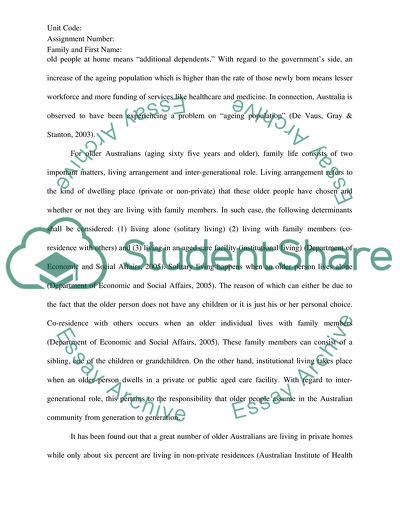Cite this document
(“The Role of Older Australians in Family Life Assignment”, n.d.)
The Role of Older Australians in Family Life Assignment. Retrieved from https://studentshare.org/social-science/1569848-assignment-2-essay
The Role of Older Australians in Family Life Assignment. Retrieved from https://studentshare.org/social-science/1569848-assignment-2-essay
(The Role of Older Australians in Family Life Assignment)
The Role of Older Australians in Family Life Assignment. https://studentshare.org/social-science/1569848-assignment-2-essay.
The Role of Older Australians in Family Life Assignment. https://studentshare.org/social-science/1569848-assignment-2-essay.
“The Role of Older Australians in Family Life Assignment”, n.d. https://studentshare.org/social-science/1569848-assignment-2-essay.


